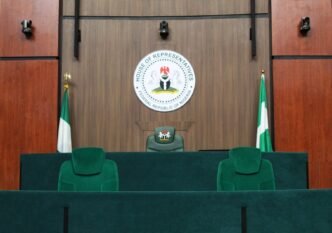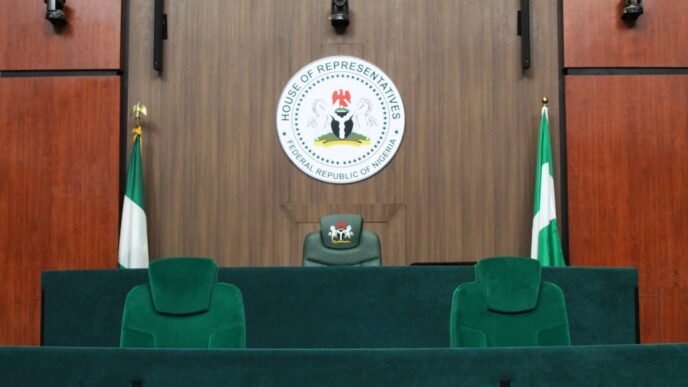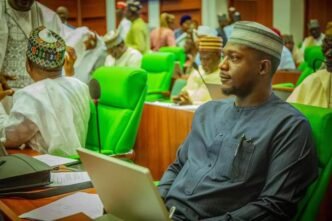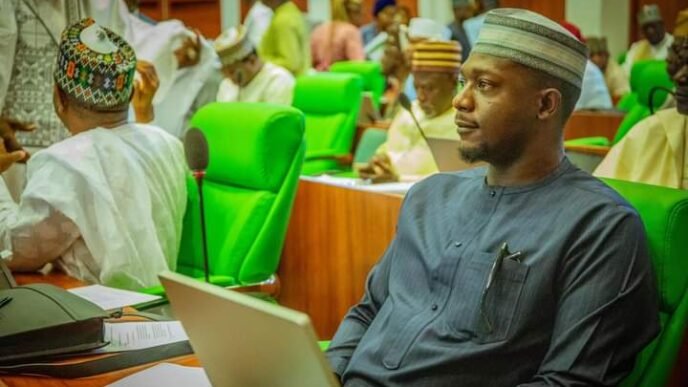HB: 1907 A BILL FOR AN ACT TO ALTER THE CONSTITUTION OF THE FEDERAL REPUBLIC OF NIGERIA, 1999 TO ESTABLISH THE LOCAL GOVERNMENT ELECTION TRIBUNALS TO HEAR AND DETERMINE ELECTION PETITIONS FOR THE OFFICES OF CHAIRMEN, VICE-CHAIRMEN AND COUNCILOR: OF LOCAL GOVERNMENT; AND FOR RELATED MATTERS Bill Sponsor: Hon. Adebayo Olusegun Balogun Bill Progress: Committee Stage
This Bill seeks to alter Section 9 and 10 of the Constitution to establish the Local Government Election Tribunals to hear and determine election petitions for the offices of Chairmen, Vice-Chairmen and Councilors of Local Government.
In recent developments in Nigerian legislative processes, a significant bill known as HB. 1907 has been proposed, aiming to amend the 1999 Constitution of the Federal Republic of Nigeria. This bill focuses on the establishment of Local Government Election Tribunals, specifically designed to address election petitions related to the offices of Chairmen, Vice-Chairmen, and Councillors within the local government framework. The proposal marks a pivotal step towards enhancing the electoral process at the grassroots level and reflects a growing recognition of the importance of local governance in the Nigerian political landscape.
The current situation regarding electoral disputes in Nigeria, particularly at the local government level, presents several challenges. While election petitions for higher offices, such as the Presidency and governorships, are typically managed by specialized election tribunals, the approach concerning local government elections has historically lacked uniformity and robustness. The resolution of disputes related to these elections tends to vary widely from state to state, often relying on state-specific laws or general court systems that are not finely attuned to the peculiarities of local governance.
The introduction of HB. 1907 aims to rectify this inconsistency by establishing dedicated Local Government Election Tribunals that would operate under a constitutional mandate. By creating these tribunals, the bill seeks to provide a clear and explicit avenue for candidates and political parties dissatisfied with election outcomes at the local level to voice their grievances. This is a significant departure from the existing framework, which can leave local election disputes in a grey area that lacks adequate judicial review processes tailored to the local governance context.
One of the key purposes of HB. 1907 is to standardize and professionalize the handling of election-related disputes across the nation. The establishment of these specialized tribunals would not only ensure that local government election petitions are adjudicated according to uniform standards but also enhance the transparency and integrity of the process. With a dedicated structure in place, stakeholders can have more confidence in the judicial outcomes, potentially increasing public trust in local governance institutions.
Access to justice is another critical element that the bill aims to address. Current processes for resolving disputes at the local government level can be cumbersome and protracted, often leading to delays that undermine the electoral process and, by extension, local governance. The proposed Local Government Election Tribunals are envisioned as swift and responsive judicial entities that could expedite the resolution of petitions. By ensuring that grievances are settled quickly, the bill could contribute to maintaining the stability of local governments and the seamless transition of power, which is essential for effective administration.
Moreover, the introduction of Local Government Election Tribunals aligns with a broader strategy to strengthen local governance in Nigeria. By equipping local government structures with a constitutionally backed mechanism for dispute resolution, the bill could enhance the legitimacy of elected officials, thereby reinforcing the democratic process at the grassroots level. A robust local governance system is pivotal for fostering community development, facilitating citizen participation, and ultimately enhancing the overall quality of democracy in Nigeria.
However, the path to realizing the objectives of HB. 1907 is not without hurdles. As a constitutional amendment bill, its passage requires a significant majority vote in both the House of Representatives and the Senate. Following this, it must also secure ratification from a majority of State Houses of Assembly. This multi-layered process reflects the complexity and intricacy of amending the Constitution, underscoring the need for continued advocacy and support from stakeholders committed to advancing local governance reform.
The implications of HB. 1907 extend beyond mere legal technicalities; they speak to the heart of democratic practice in Nigeria. The establishment of Local Government Election Tribunals could potentially reshape the landscape of local politics, inviting greater participation from citizens and ensuring that their voices are heard in the electoral process. With more accessible and specialized avenues for dispute resolution, local communities can foster political accountability and legitimacy that are essential for democratic governance.
In conclusion, HB. 1907 represents a forward-thinking approach to addressing the unique challenges associated with local government elections in Nigeria. By proposing a constitutional amendment to establish dedicated Local Government Election Tribunals, the bill aims to streamline electoral dispute resolution, standardize processes across states, enhance access to justice, and ultimately strengthen local governance. As the legislative process unfolds, the potential for this bill to transform the local electoral landscape will be closely monitored by citizens, political actors, and governance advocates alike. The successful enactment of HB. 1907 could herald a new era of democratic practice in Nigeria, characterized by transparency, accountability, and strengthened local governance structures.











